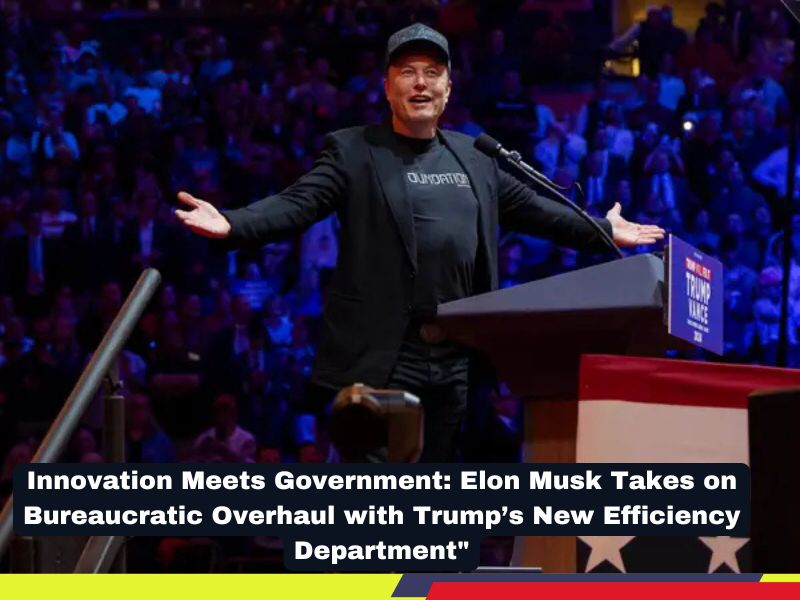In an unexpected but high-profile appointment, President-elect Donald Trump has tapped tech billionaire Elon Musk and former Republican primary candidate Vivek Ramaswamy to jointly lead the newly created Department of Government Efficiency. This advisory body, announced by Trump’s transition team, is tasked with exploring ways to streamline federal bureaucracy and improve government processes. Musk and Ramaswamy, both outsiders with backgrounds in innovation and business, bring a unique perspective to this effort, aimed at reducing inefficiencies within the federal government.
An Ambitious Move Toward Reducing Bureaucracy
The Department of Government Efficiency is envisioned as an advisory group focused on cutting through the often-cumbersome layers of federal red tape. By appointing leaders from outside the traditional political sphere, Trump’s administration hopes to draw on private-sector strategies to improve the government’s operations. Musk, known for his work with Tesla, SpaceX, and other transformative ventures, has built a reputation on innovative thinking and a relentless focus on efficiency. Vivek Ramaswamy, a successful entrepreneur known for his outspoken views on free-market capitalism and government reform, complements Musk’s approach with a strong background in business ethics and policy.
The pairing of Musk and Ramaswamy suggests a bipartisan approach to efficiency, with the two set to bring their distinct visions to the task of reforming government practices. According to David Willis, a correspondent covering the transition, this advisory body will “provide advice and guidance from outside of government,” helping the administration tackle inefficiencies head-on.
What the Department of Government Efficiency Will Do
While details about the body’s structure and specific responsibilities are still emerging, the Department of Government Efficiency will primarily serve as an advisory council, not a regulatory body. Musk and Ramaswamy will provide recommendations directly to Trump and other top administration officials on how best to dismantle or streamline redundant processes across federal agencies.
The goal, according to Trump’s team, is to “dismantle government bureaucracy” by identifying and removing unnecessary obstacles within federal operations, which could involve everything from modernizing outdated systems to cutting costs. The team’s work will likely intersect with a broad range of federal agencies, from the Department of Energy to the Department of Health and Human Services, each of which faces its own unique set of operational challenges.
A New Era of Private-Sector Influence in Government
Trump’s decision to appoint two prominent private-sector leaders to this role signals a commitment to exploring new ways of approaching government reform. Elon Musk’s unconventional and often experimental methods—combined with Ramaswamy’s insights into policy reform and government ethics—may create a dynamic partnership capable of making headway on inefficiencies that have plagued the federal system for decades.
This appointment is seen as part of Trump’s broader strategy to involve non-traditional voices in government, a hallmark of his campaign promise to “drain the swamp.” Musk and Ramaswamy’s influence in this advisory role could pave the way for a new model of government reform that prioritizes practicality, speed, and the implementation of proven private-sector strategies.
Looking Ahead
As Musk and Ramaswamy prepare to step into their roles, many questions remain about how this new advisory body will function and whether it can make a tangible impact on government efficiency. For Trump’s administration, the Department of Government Efficiency represents both a practical initiative and a symbolic one: a chance to signal to the American people that reform is possible.
While the full impact of this appointment will take time to unfold, the collaboration between Musk and Ramaswamy promises to be a bold experiment in cross-sector problem-solving. If successful, this initiative could set a precedent for future administrations to embrace unconventional talent in the pursuit of a more effective and streamlined government.




